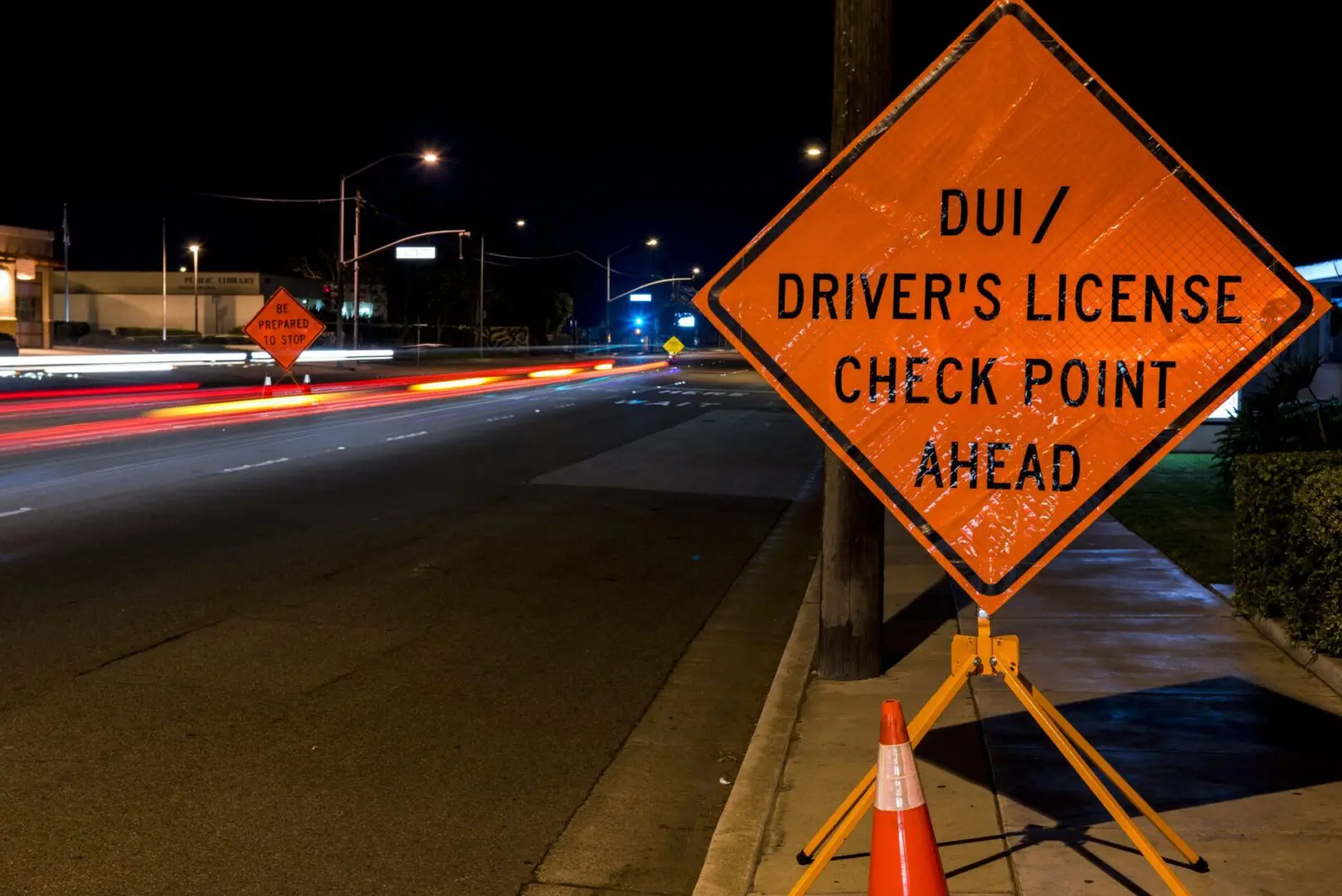DUI Checkpoints act as a common tool to identify and arrest drunk drivers in Orange County, San Diego, Los Angeles Counties, and throughout the entire State of California. Read on to find out more about what happens at these DUI Checkpoints and the approach used by law enforcement officers when conducting DUI Investigations at DUI Sobriety Checkpoints, including Field Sobriety Testing.
WHAT HAPPENS AT A DUI CHECKPOINT?
A DUI Checkpoint typically consists of roadblocks along major intersections to stop motorists according to a neutral mathematical formula. Thereafter, to identify any signs of intoxication, and if the driver of one of these vehicles possesses signs of intoxication, he/she can be asked to submit to Field Sobriety Testing to help determine whether the person should or should not be driving. I recently came across an article by Attorney Paul Geller that set forth “Some of the Biggest Problems with Field Sobriety Tests”. I have also posted similar articles on the subject of the “Standardized Field Sobriety Tests”; but from a different perspective, which makes Mr. Geller’s post unique and worth the read. A DUI attorney in Teaneck, New Jersey, Benjamin Kelsen, also provides a good summary or overview of the “Standardized Field Sobriety Test Battery” that is also worth reading if you want to learn more about Field Sobriety Testing, whether at a DUI Sobriety Checkpoint or otherwise.
DUI Sobriety Checkpoints are supported under federal law as being constitutionally permissible, but are prohibited in certain states. Although there is a debate about whether DUI roadblocks may or may not be the best and/or most accurate method deployed by law enforcement, they have helped identify DUI drivers and reduced the number of alcohol-related fatalities on the roads according to NHTSA and other government agencies that support the use of DUI Sobriety Checkpoints. As a result, they have been deemed constitutionally acceptable and if you are in a State that implements them, such as California, you should expect to see or hear about at least one DUI Sobriety Checkpoint in your life.





